
Find Help
More Items From Ergsy search
-

How do clinics determine if IVF is the right option?
Relevance: 100%
-

What is IVF?
Relevance: 46%
-

Is IVF successful?
Relevance: 46%
-

Does IVF guarantee pregnancy?
Relevance: 44%
-
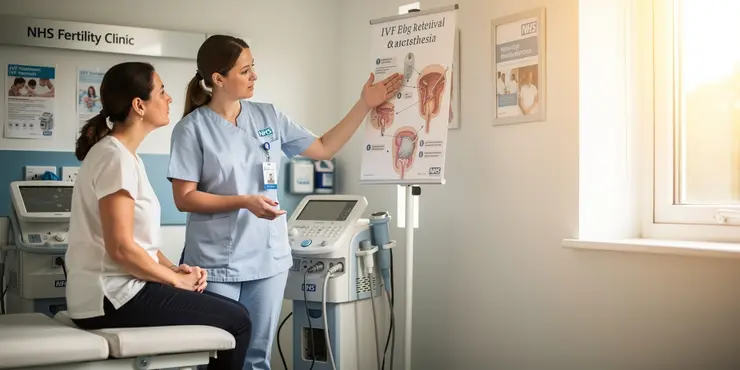
Does IVF require anesthesia?
Relevance: 43%
-

Infertility - IVF Treatment and Patient Information
Relevance: 42%
-

IVF Fertility Treatment from MumsNet
Relevance: 41%
-
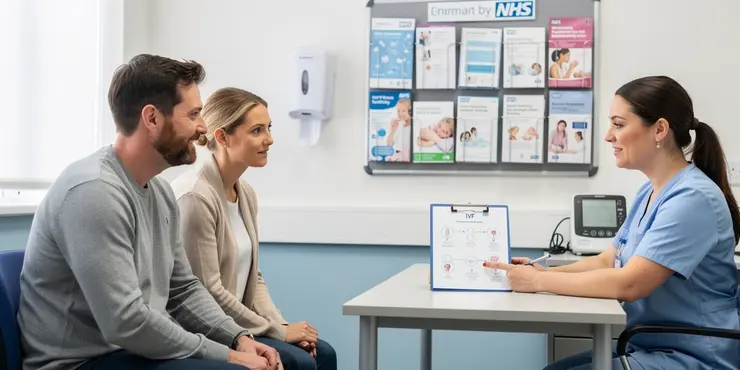
How does IVF work?
Relevance: 39%
-

Are there risks associated with IVF?
Relevance: 39%
-

Who might need IVF?
Relevance: 39%
-
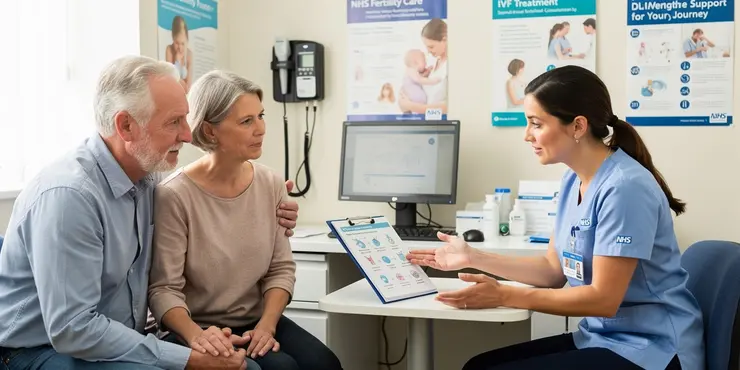
What is IVF and how does it work?
Relevance: 39%
-
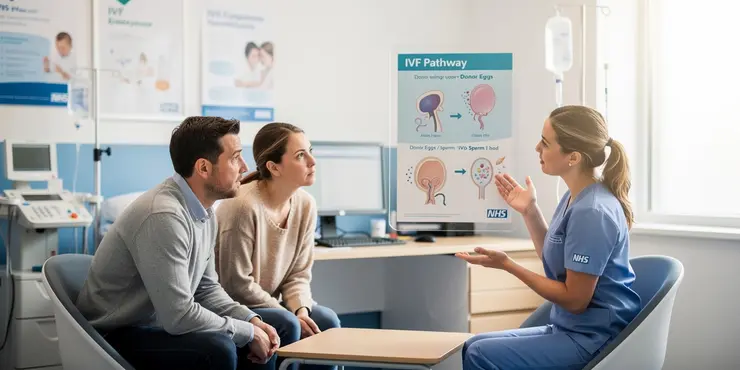
Can IVF be done with donor eggs or sperm?
Relevance: 38%
-

Can IVF be used for gender selection?
Relevance: 38%
-

What should I expect during IVF treatment?
Relevance: 37%
-
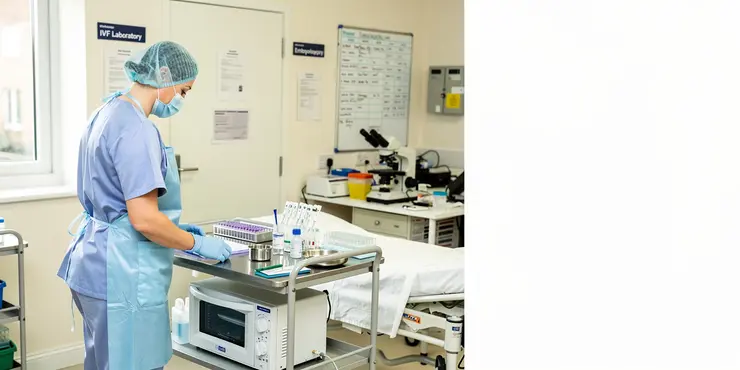
What is the role of the embryologist in IVF?
Relevance: 37%
-

How many embryos are usually transferred in IVF?
Relevance: 37%
-
How do I choose the right dental clinic in Turkey?
Relevance: 37%
-
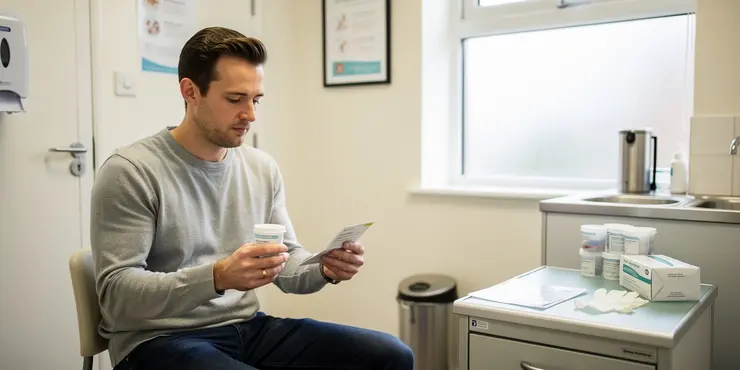
How is the sperm used in IVF?
Relevance: 37%
-

What are the main steps in an IVF cycle?
Relevance: 36%
-

How are embryos transferred during IVF?
Relevance: 36%
-
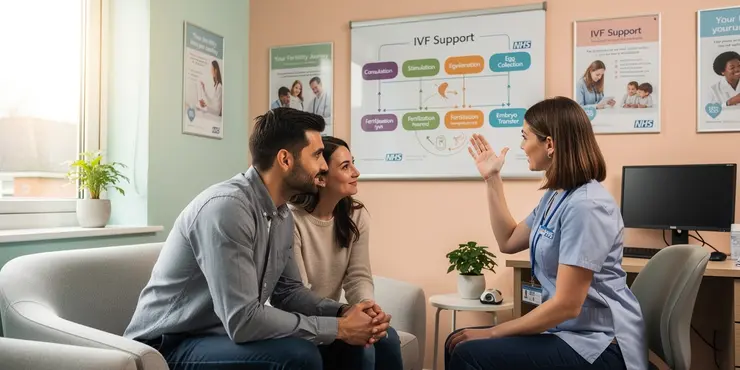
How long does an IVF cycle take?
Relevance: 33%
-
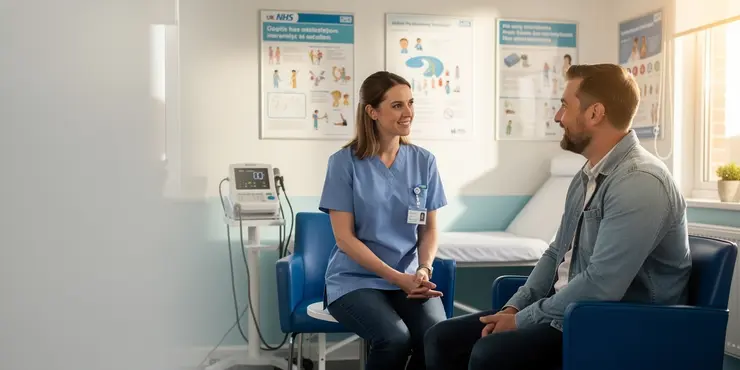
Are there clinical trials available for prostate cancer treatment?
Relevance: 26%
-
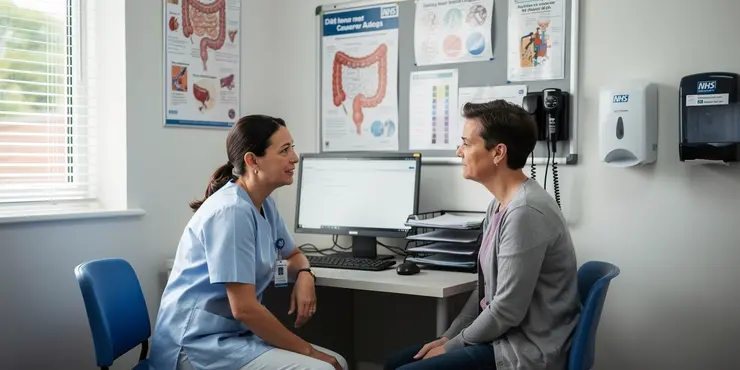
How is the stage of bowel cancer determined?
Relevance: 25%
-

I've found a lump in my breast - What happens next? The breast diagnostic clinic
Relevance: 24%
-

Clinical Handover - Care 24/7
Relevance: 24%
-

What factors determine the treatment plan for prostate cancer?
Relevance: 24%
-

Clinical depression: Lawrence's story | NHS
Relevance: 24%
-

I've found a lump in my breast - What happens next? The breast diagnostic clinic
Relevance: 24%
-
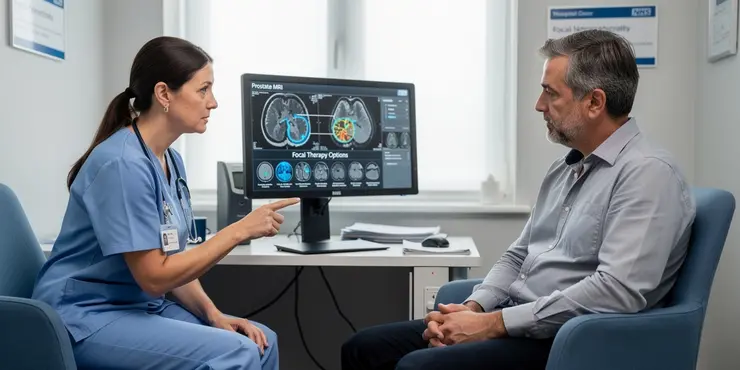
Is focal therapy an option for prostate cancer?
Relevance: 23%
-
How do I know if mobility equipment is right for me?
Relevance: 23%
-
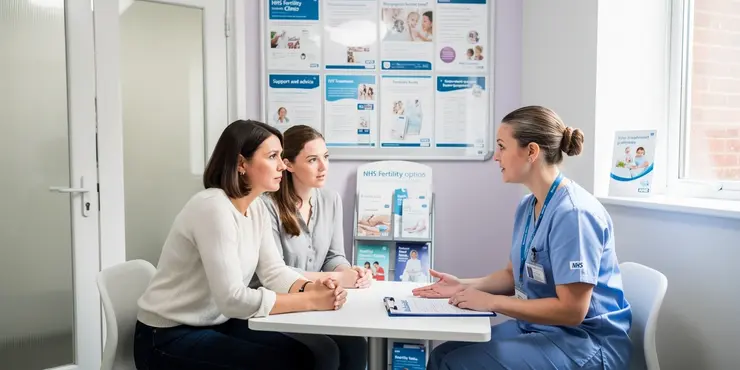
Fertility treatments on the up, but not via the NHS
Relevance: 23%
-

Post Menopausal Bleeding Clinic | A Guide to What Happens at An Appointment
Relevance: 22%
-
What languages do NHS dental clinics typically support?
Relevance: 22%
-

How do I find a suitable hospital or clinic for my treatment?
Relevance: 22%
-

What legal rights do I have as a medical patient in the EU?
Relevance: 22%
-

Is Paillon treatment used in any clinical trials?
Relevance: 22%
-
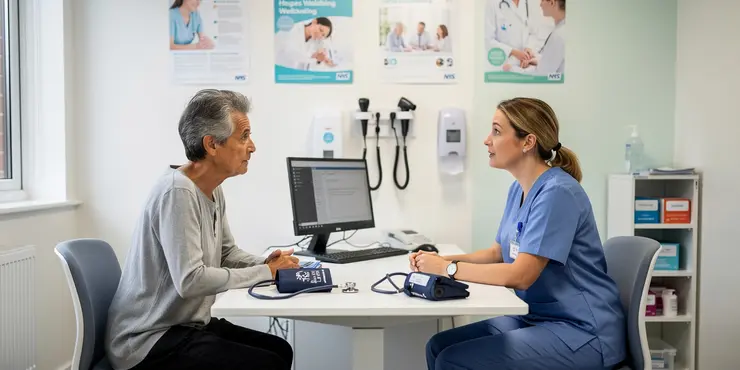
How do I choose the right clinic for a hair transplant in Turkey?
Relevance: 22%
-
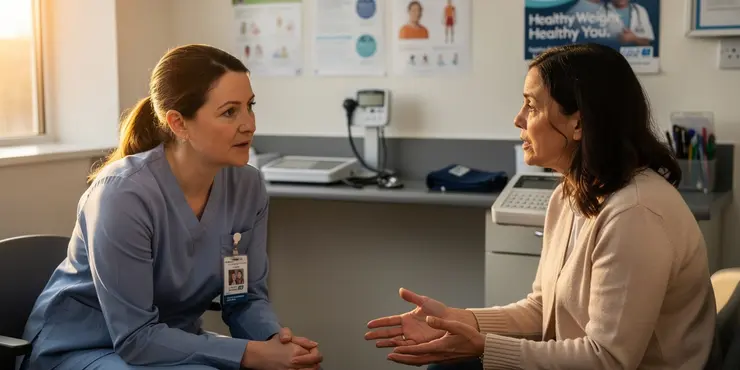
Are there any clinical trials supporting Ozempic for weight loss?
Relevance: 22%
-
Are there any clinical trials for preventing type 1 diabetes?
Relevance: 22%
-
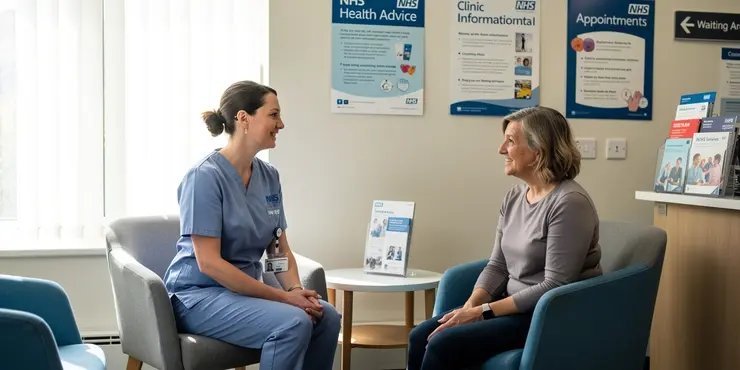
The Human Rights Act
Relevance: 21%
Understanding IVF Suitability in the UK
In vitro fertilization (IVF) is a widely used assisted reproductive technology in the UK, offering hope to many couples facing infertility. Clinics determine if IVF is the right option by evaluating various medical and personal factors. This process ensures that patients receive the most appropriate and effective treatment for their unique situation.
Initial Consultation and Assessment
The first step in determining if IVF is suitable involves an initial consultation with a fertility specialist. During this session, a detailed medical history is taken, covering aspects such as previous pregnancies, duration of infertility, and any underlying health conditions. The specialist may also inquire about lifestyle factors that could affect fertility, including smoking, alcohol consumption, and body weight.
Following the consultation, both partners typically undergo a series of standard fertility tests. These tests may include an analysis of the woman's ovarian reserve to evaluate egg quality and quantity, using blood tests such as Anti-Müllerian Hormone (AMH) and Follicle Stimulating Hormone (FSH). For men, a semen analysis is conducted to assess sperm count, motility, and morphology.
Exploring Underlying Health Issues
If initial assessments identify potential issues such as blocked fallopian tubes, endometriosis, or polycystic ovary syndrome (PCOS), the clinic may recommend further diagnostic procedures. These could include ultrasound scans, hysterosalpingography (HSG), or laparoscopy, depending on the specifics of each case.
Addressing male factor infertility is also crucial. If semen analysis results are abnormal, additional tests like hormone evaluations or genetic screenings may be suggested. Treating any identified conditions might improve fertility without the need for IVF, but if not, such findings guide the IVF treatment process.
Considering Non-Medical Factors
Clinics also consider non-medical factors when recommending IVF. Psychological and emotional readiness is significant, as the IVF journey can be demanding and stressful. Clinics provide access to counseling services to help couples prepare mentally and emotionally.
Financial considerations are also part of the decision-making process. While some patients may be eligible for NHS-funded IVF treatments, availability varies by region. Others may need to consider private treatment options and the associated costs.
Finalizing the Decision
After thorough evaluation, the fertility clinic discusses findings with the couple to determine the best course of action. If IVF is deemed the appropriate option, the clinic outlines the treatment plan, including timelines, procedures, and expected outcomes. Patients are encouraged to discuss any concerns or questions before proceeding.
Ultimately, the decision to undergo IVF is a collaborative process between the clinic and the couple, ensuring that all medical, emotional, and financial aspects are thoroughly considered. This patient-centered approach helps ensure the highest chances of success and satisfaction with the treatment.
Who Can Have IVF in the UK?
IVF stands for in vitro fertilization. It is a treatment to help people have babies. In the UK, it helps many couples who find it hard to get pregnant. Doctors check many things to decide if IVF is the best choice. This makes sure people get the right help for them.
First Meeting with the Doctor
The first step is to meet a special doctor who knows about IVF. In this meeting, the doctor asks lots of questions. They ask about your health and any past pregnancies. They want to know how long you have tried to have a baby and if you have any health problems. They also ask about your lifestyle, like if you smoke or drink alcohol, and your weight.
After the meeting, both people usually have tests to check their fertility. For women, tests check how good and how many eggs there are. This is done with blood tests. For men, a semen test checks the number, movement, and shape of sperm.
Looking for Other Health Problems
Sometimes, tests show problems like blocked tubes, endometriosis, or PCOS. The clinic may do more tests to learn more. These tests can be special scans or other procedures.
If there is a problem with sperm, more tests are done. These can include hormone or genetic tests. Fixing any problems might help make a baby without IVF. But if not, the test results help plan IVF treatment.
Thinking About Other Things
Doctors also think about other important things before recommending IVF. They check if you are ready in your mind and feelings, as IVF can be hard and stressful. Clinics offer counseling to help get ready.
Money is important too. Some people can get IVF paid for by the NHS, but it depends on where you live. Others might have to pay for private treatment.
Making the Final Decision
After all the checks, the doctor talks with the couple to decide what to do. If IVF is the best choice, the doctor explains what happens next. They talk about how long it will take, what will happen, and what to expect. It is important to ask questions and share concerns.
The decision to have IVF is made together by the couple and the clinic. They look at all the medical, emotional, and money issues closely. This teamwork helps make the best choice and gives the best chance for success.
Frequently Asked Questions
What initial evaluations do clinics perform to determine if IVF is appropriate?
Clinics typically perform a thorough medical history review, physical examinations, and diagnostic tests such as blood tests and ultrasounds to assess reproductive health.
How does age factor into the decision for recommending IVF?
Age is a significant factor; women under 35 have higher success rates with IVF, but age-related fertility decline is considered when recommending IVF.
What role do fertility tests play in deciding if IVF is the right choice?
Fertility tests like hormone testing, ovarian reserve testing, and semen analysis help assess the reproductive potential, guiding the decision towards IVF.
How do clinics address unexplained infertility in the context of IVF?
IVF may be recommended for unexplained infertility when other treatments haven't worked, as it allows for direct observation of potential fertilization issues.
What financial considerations are discussed when determining if IVF is suitable?
Clinics discuss costs, insurance coverage, and financial options with patients to ensure they understand the economic implications of IVF treatment.
How do lifestyle factors influence the decision to pursue IVF?
Clinics evaluate lifestyle factors, such as smoking, alcohol consumption, and body weight, which can affect fertility and IVF success rates.
What other fertility treatments are considered before recommending IVF?
Before recommending IVF, clinics might consider less invasive treatments like fertility medications, intrauterine insemination (IUI), or surgery.
How is male infertility assessed in deciding if IVF is an option?
Male infertility is assessed through semen analysis and other tests; significant issues might lead to IVF with intracytoplasmic sperm injection (ICSI).
Why might IVF be chosen over other fertility treatments like IUI?
IVF might be chosen if there are specific issues like blocked fallopian tubes, severe male factor infertility, or previous unsuccessful IUI attempts.
How do clinics determine egg quality and its impact on IVF decisions?
Egg quality is assessed through ovarian reserve tests and may inform the likelihood of IVF success, guiding the treatment plan.
What patient health conditions might lead to a recommendation for IVF?
Certain health conditions, such as endometriosis, polycystic ovary syndrome (PCOS), or damage to reproductive organs, might lead to an IVF recommendation.
What emotional and psychological considerations are made before recommending IVF?
Clinics often provide counseling to discuss the emotional and psychological impacts of IVF, ensuring patients are prepared for the process.
How is the couple's previous fertility treatment history evaluated for IVF suitability?
Clinics review all previous fertility treatments and outcomes to tailor the IVF approach based on past experiences and responses.
How does the duration of infertility influence the decision to pursue IVF?
The duration of infertility, especially prolonged cases, can drive clinics to recommend IVF if other methods have failed.
How is the success rate of IVF considered in recommending it to patients?
Clinics provide patients with success rate data, considering factors like age and medical history to set realistic expectations for IVF.
What genetic considerations might lead to a recommendation of IVF?
Couples at risk of genetic disorders might consider IVF with preimplantation genetic testing (PGT) to avoid passing on conditions.
How do structural abnormalities in reproductive organs impact IVF decisions?
Structural abnormalities, like uterine or tubal issues, are assessed with imaging and may warrant IVF if they impede natural conception.
How important is patient preference in deciding if IVF is the right treatment?
Clinics take patient preferences seriously, aligning treatment plans with their desires after discussing all options and outcomes.
What is the role of lifestyle modification advice before IVF is suggested?
Clinics may suggest lifestyle changes, such as dietary adjustments, exercise, or quitting smoking, to improve the outcome before proceeding with IVF.
How do clinics use ultrasound findings to influence IVF treatment decisions?
Ultrasound findings provide detailed information on ovarian and uterine health, helping clinics determine IVF readiness and customize protocols.
How do clinics find out if IVF can help you?
Clinics start by doing some checks to see if IVF might be a good choice for you.
They might:
- Ask questions about your health.
- Do some tests to see how your body is working.
- Talk to you about your medical history.
If you find reading hard, you can:
- Use a reading tool that reads text out loud.
- Ask someone you trust to help explain things.
- Take breaks and read a little at a time.
Doctors help people check if they are healthy so they can have babies. They ask people about their health in the past. Then, they check their bodies. Doctors might do some tests, like looking at blood or taking pictures inside the body with a machine.
How does age matter for recommending IVF?
When doctors decide if IVF is a good choice, they think about the person's age. Age can change how well IVF works. For younger people, IVF might work better. As people get older, it might be harder to have a baby with IVF. Doctors use age to help them give the best advice.
Tools or tips to help understand:
- Ask your doctor to explain things in simple words.
- Bring a friend or family member to help remember what the doctor says.
- Write down any questions you have before you see the doctor.
Age is important. Women who are younger than 35 usually have better chances with IVF. Doctors think about age when they talk about IVF.
How do fertility tests help us decide about IVF?
Doctors use different tests to see how easy it might be for someone to have a baby. They check hormones, eggs, and sperm. These tests help decide if they should try IVF, which is a way to help people have babies. Simple language online and picture guides can help you understand these tests better.
How do clinics help with unexplained infertility when using IVF?
Clinics help people who cannot have a baby, and they don't know why. This is called "unexplained infertility." One way clinics help is with IVF. IVF stands for In Vitro Fertilization. It means making a baby outside the body.
Clinics do many tests to understand the problem. They check both the man's and the woman's health. Then, they talk about the best steps to help them have a baby.
Clinics use special tools to help. They also have experts who know a lot about babies and health. These experts support you during the IVF process.
If you find reading hard, ask someone to read with you. Use apps that read text aloud. They can help you understand better.
Doctors might suggest trying IVF if they don't know why a couple can't have a baby and other treatments have not worked. IVF helps doctors see what's happening when an egg and sperm meet.
What money things do we think about for IVF?
When we think about if IVF is a good idea, we need to talk about money. Here are some things to think about:
- How much does IVF cost?
- Can insurance help pay for it?
- Are there ways to get money help or funding?
- What are the costs for medicine and doctor visits?
- Will there be extra costs later?
It helps to use a calculator or ask someone who knows about money to help plan. Talking to a doctor can also help with choices.
Doctors' offices talk about the money part of having a baby with IVF. They help people understand how much it costs and how to pay for it. They can also talk about health insurance and ways to get help with the money.
What things in life can affect the choice to try IVF?
Some things in life can make people choose IVF. IVF is a way to help have a baby. Here are a few things that might matter:
- Health: Staying healthy is important. Eating good food, moving your body, and not smoking can help.
- Age: Sometimes age matters. If someone is older, IVF might help them have a baby.
- Stress: Feeling calm is good. Stress can make it harder to have a baby. Relaxing activities like drawing or listening to music can help.
- Money: IVF can cost a lot. Some people save money or ask for help to pay for IVF.
People think about these things before trying IVF. Talking to a doctor can also help decide.
Helpful tools can include pictures, simple lists, or talking with friends or family for support.
Clinics look at things like smoking, drinking alcohol, and body weight. These things can make it harder to have a baby and can affect how well IVF works.
If you need help understanding this, ask a trusted adult or teacher. You can also use picture charts or apps to make it easier.
What treatments are tried before IVF?
Before doctors suggest IVF, they might try other treatments first. These could be special medicines, putting sperm directly in the womb (called IUI), or an operation.
How do doctors check if a man can have children before trying IVF?
To see if a man can have a baby, doctors look at his sperm and do other tests. If there are big problems, doctors might use a special way called IVF with ICSI to help make a baby.
Why Choose IVF Instead of IUI?
Some people want to have a baby, but it's not easy. There are different ways to help. Two common ways are IVF and IUI.
IVF means "In Vitro Fertilization." IUI means "Intrauterine Insemination."
Here are reasons to choose IVF:
- IVF can help when other ways do not work.
- It can help if there are problems with the woman's tubes.
- IVF can be better for older women.
- It can help if there are problems with the man's sperm.
If you're not sure, it helps to talk to a doctor.
Some tools can help you understand:
- Use simple words when you ask questions.
- Ask the doctor to explain with pictures.
- Bring a friend or family member to help you understand.
People might choose IVF if there are problems like blocked tubes, trouble with the man's sperm, or if other treatments didn't work before.
How do clinics check egg quality and what it means for IVF decisions?
Clinics look at eggs to see how good they are. Good eggs can help make a healthy baby.
Doctors use special tools to check the eggs. They look at the size and shape of the eggs.
If the eggs are not good, doctors might suggest other ways to help with having a baby.
It is important for clinics to choose the best eggs for IVF.
Doctors check how good eggs are by doing special tests. This helps them see if IVF treatment might work well. The results can help doctors decide the best way to help.
When might a doctor suggest IVF to help someone have a baby?
Doctors might suggest IVF for different reasons. Here are some:
- If a woman's tubes are blocked, so eggs can't meet sperm.
- If a man does not have enough healthy sperm.
- If a woman has a health problem that makes it hard to carry a baby.
- If a couple has tried for a long time but can't have a baby.
IVF stands for In-Vitro Fertilization. It's when doctors help to make a baby outside of the body, in a special lab. The baby then goes back into the mom's belly to grow.
Support tools like pictures and videos can help understand this. You can talk to a doctor or nurse if you have questions.
Some health problems can make it hard to have a baby. These problems include endometriosis, polycystic ovary syndrome (PCOS), or damage to the parts of the body that help make babies. If you have these problems, a doctor might say you need help to have a baby, like using IVF.
How do feelings and thoughts affect the choice to try IVF?
Before deciding on IVF, doctors think about how people feel and what they think. Here are some things they consider:
- Feelings: Are you feeling okay about trying IVF?
- Thoughts: Do you understand how IVF works?
- Support: Do you have friends or family to help you?
- Talking: It can help to talk to a counselor or therapist about worries.
Remember, it's okay to ask questions and take your time to decide.
Clinics often give support to talk about feelings and worries when going through IVF. This helps people get ready for the treatment.
How do doctors check if a couple's past fertility treatments can help with IVF?
Clinics look at all the fertility treatments you have had before. They check what worked and what didn't. This helps them choose the best IVF plan for you.
How does waiting to have a baby change the choice to try IVF?
When a couple can't have a baby for a long time, they might decide to try IVF. IVF is a special help to make a baby. It stands for In Vitro Fertilization.
If a couple has tried to have a baby for a long time and it hasn't worked, they might think more about trying IVF. Waiting for a long time can make them want to try IVF sooner.
To help understand and make decisions about IVF, people can talk to doctors. They can also use websites and books that explain IVF in simple words.
If you have been unable to have a baby for a long time, the doctor might suggest trying IVF. This is usually if other ways have not worked.
How do doctors decide if IVF is a good choice for patients?
Clinics share how often IVF works. They look at things like how old you are and your health. This helps you know what to expect.
Why might doctors suggest IVF because of genes?
Sometimes, if there are problems with genes, doctors might say IVF is a good idea.
Genes are like instructions in our body that make us who we are.
If there is a problem with these instructions, it can cause health problems for a baby.
IVF can help doctors pick healthy genes for a baby.
Tools that can help with understanding this are simple picture guides or videos about how genes and IVF work.
If a couple is worried about passing on genetic problems to their baby, they can try a special way of having a baby called IVF. They can use a test called PGT to check if the baby will have these problems before the baby starts to grow.
How do problems with reproductive organs affect IVF choices?
Reproductive organs are parts of the body that help with making babies.
If there are problems or changes in these organs, it can make it harder to have a baby with IVF (a special way to help people have babies).
Doctors need to check these organs to decide the best steps for IVF.
If reading is hard, ask someone to read it out loud for you. You can also use tools like reading apps that help make it easier to understand.
Problems in the body, like issues with the womb or tubes, can be checked with pictures taken inside your body. If these problems make it hard to have a baby naturally, doctors might suggest using a special method called IVF to help. You can ask your doctor about other tools or techniques that might help too.
How important is it for patients to choose IVF?
When deciding on IVF treatment, it's really important to think about what the patient wants. Patients should feel comfortable talking about their choices with doctors. They can use simple words or pictures to help explain their thoughts.
Listening to patients helps doctors give better care. It makes sure the treatment feels right for them. Patients can also ask a friend or family member to help them make decisions.
Clinics listen to what patients want. They talk with patients about all the ways to help them and what might happen. Then, they make a plan that fits what the patients like.
Why is it important to change your lifestyle before starting IVF?
Doctors might talk to you about changing some habits before you start IVF. This is to help your body get ready. Here are some things you might hear about:
- Eat healthy foods like fruits and vegetables.
- Move your body with exercise like walking or dancing.
- Sleep well by going to bed at the same time every night.
- Stop smoking and drinking alcohol.
- Relax with activities you enjoy, like reading or drawing.
These changes can make your body healthier. A healthy body can help IVF work better. You can even use reminder apps to keep track of these changes!
Doctors might say to change some things in your life before you have IVF. They could ask you to eat different foods, do some exercise, or stop smoking. This can help make the IVF work better.
How do clinics use ultrasound pictures to help with IVF treatment choices?
Clinics use ultrasound machines to take pictures inside the body.
These pictures help doctors see how the ovaries and eggs are doing.
Doctors use this information to make important decisions for IVF treatment.
IVF is when doctors help people have a baby.
Ultrasound pictures show how many eggs there are and if they look healthy.
This helps doctors decide the best way to do the treatment.
Reading aids or having someone read with you can be helpful.
Ultrasound pictures help doctors see how healthy the ovaries and uterus are. This helps clinics know if someone is ready for IVF (a special way to help people have babies) and make a plan that is just right for them.
Useful Links
This website offers general information and is not a substitute for professional advice.
Always seek guidance from qualified professionals.
If you have any medical concerns or need urgent help, contact a healthcare professional or emergency services immediately.
Some of this content was generated with AI assistance. We’ve done our best to keep it accurate, helpful, and human-friendly.
- Ergsy carfully checks the information in the videos we provide here.
- Videos shown by Youtube after a video has completed, have NOT been reviewed by ERGSY.
- To view, click the arrow in centre of video.
- Most of the videos you find here will have subtitles and/or closed captions available.
- You may need to turn these on, and choose your preferred language.
- Go to the video you'd like to watch.
- If closed captions (CC) are available, settings will be visible on the bottom right of the video player.
- To turn on Captions, click settings .
- To turn off Captions, click settings again.
More Items From Ergsy search
-

How do clinics determine if IVF is the right option?
Relevance: 100%
-

What is IVF?
Relevance: 46%
-

Is IVF successful?
Relevance: 46%
-

Does IVF guarantee pregnancy?
Relevance: 44%
-

Does IVF require anesthesia?
Relevance: 43%
-

Infertility - IVF Treatment and Patient Information
Relevance: 42%
-

IVF Fertility Treatment from MumsNet
Relevance: 41%
-

How does IVF work?
Relevance: 39%
-

Are there risks associated with IVF?
Relevance: 39%
-

Who might need IVF?
Relevance: 39%
-

What is IVF and how does it work?
Relevance: 39%
-

Can IVF be done with donor eggs or sperm?
Relevance: 38%
-

Can IVF be used for gender selection?
Relevance: 38%
-

What should I expect during IVF treatment?
Relevance: 37%
-

What is the role of the embryologist in IVF?
Relevance: 37%
-

How many embryos are usually transferred in IVF?
Relevance: 37%
-
How do I choose the right dental clinic in Turkey?
Relevance: 37%
-

How is the sperm used in IVF?
Relevance: 37%
-

What are the main steps in an IVF cycle?
Relevance: 36%
-

How are embryos transferred during IVF?
Relevance: 36%
-

How long does an IVF cycle take?
Relevance: 33%
-

Are there clinical trials available for prostate cancer treatment?
Relevance: 26%
-

How is the stage of bowel cancer determined?
Relevance: 25%
-

I've found a lump in my breast - What happens next? The breast diagnostic clinic
Relevance: 24%
-

Clinical Handover - Care 24/7
Relevance: 24%
-

What factors determine the treatment plan for prostate cancer?
Relevance: 24%
-

Clinical depression: Lawrence's story | NHS
Relevance: 24%
-

I've found a lump in my breast - What happens next? The breast diagnostic clinic
Relevance: 24%
-

Is focal therapy an option for prostate cancer?
Relevance: 23%
-
How do I know if mobility equipment is right for me?
Relevance: 23%
-

Fertility treatments on the up, but not via the NHS
Relevance: 23%
-

Post Menopausal Bleeding Clinic | A Guide to What Happens at An Appointment
Relevance: 22%
-
What languages do NHS dental clinics typically support?
Relevance: 22%
-

How do I find a suitable hospital or clinic for my treatment?
Relevance: 22%
-

What legal rights do I have as a medical patient in the EU?
Relevance: 22%
-

Is Paillon treatment used in any clinical trials?
Relevance: 22%
-

How do I choose the right clinic for a hair transplant in Turkey?
Relevance: 22%
-

Are there any clinical trials supporting Ozempic for weight loss?
Relevance: 22%
-
Are there any clinical trials for preventing type 1 diabetes?
Relevance: 22%
-

The Human Rights Act
Relevance: 21%


